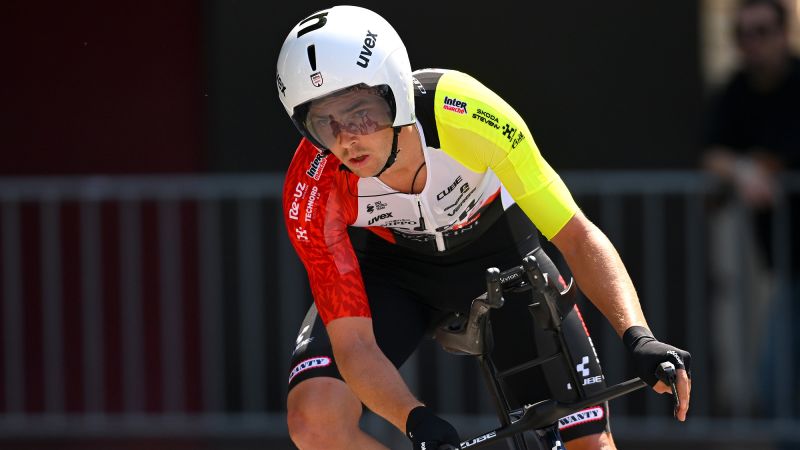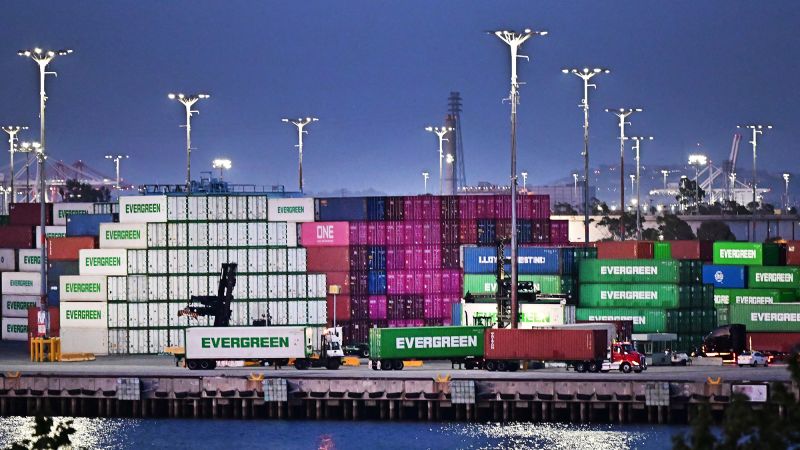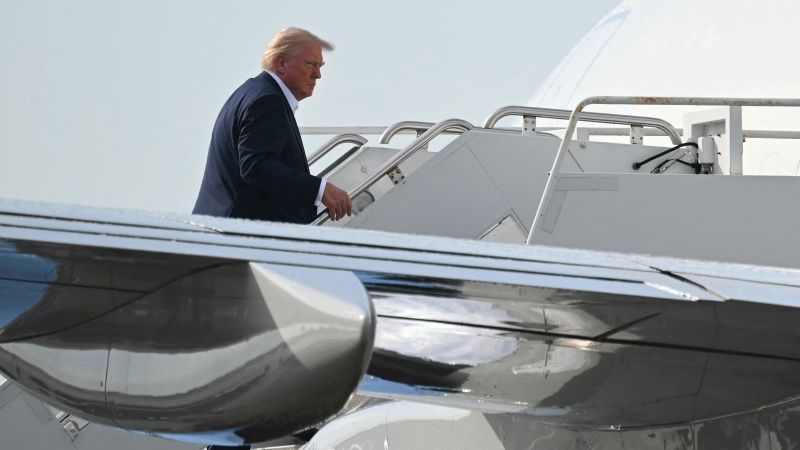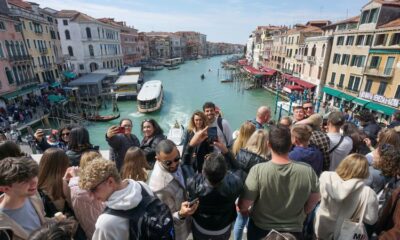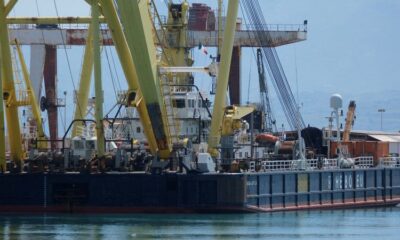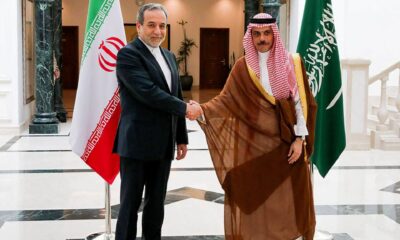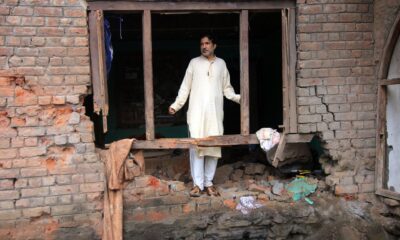CNN
—
For a fortnight every May, Cannes hosts more stars than there are in heaven (or the old MGM backlot). This year the French film festival will be even glitzier than usual as a who’s-who of Hollywood talent descends on the Côte d’Azur to rub shoulders with the great and good of the international film community.
All signs point to a stellar year for Cannes, riding high off a strong showing at the Academy Awards, with filmmakers queuing up to hit the red carpet and risk the barbs of sleep-deprived critics.
The US contingent at the festival, which begins Tuesday, is large. Tom Cruise returns to Cannes three years after “Top Gun: Maverick” with “Mission: Impossible – The Final Reckoning,” hoping to repeat the winning formula that propelled “Maverick” to a billion dollars at the box office. No honorary Palme d’Or for Cruise this time though; instead, that will be handed to Cannes habitué Robert De Niro, a year shy of the 50th anniversary of “Taxi Driver” winning the Palme d’Or. Spike Lee, who served as jury president in 2021 (not without incident) will also return with “Highest 2 Lowest,” his riff on Akira Kurosawa’s “High To Low” (1963), starring Denzel Washington as a music mogul targeted with a ransom plot.
“Highest 2 Lowest” will play out of competition alongside Ethan Coen comedy “Honey Don’t!,” his follow up to last year’s “Drive Away Dolls,” the second title in his so-called “lesbian B-movie trilogy.” Whether it’s simply a case of a stacked lineup, or quibbles over theatrical windows and French law (Lee’s film will hit Apple TV+ in September, presumably nixing any chance of a cinema release in France), it’s a sign of the festival’s rude health that these Cannes heavyweights aren’t duking it out for a Palme d’Or.
So, who is? Competition for the top prize signals a changing of the guard. Some Cannes stalwarts remain: two-time Palme winners the Dardennes brothers of Belgium with “Young Mothers,” Ukrainian Sergei Loznitsa with “Two Prosecutors,” and Scotland’s Lynne Ramsay (“We Need To Talk About Kevin,” “You Were Never Really Here”), whose adaptation of Ariana Harwicz’s novel “Die, My Love” stars Jennifer Lawrence and Robert Pattinson. Wes Anderson will also be in competition for the fourth time with “The Phoenician Scheme,” featuring some of his usual players (Bill Murray, Jeffrey Wright) and some delightful new additions (Riz Ahmed, Mia Threapleton, daughter of Kate Winslet). Add castmates Tom Hanks, Scarlett Johansson, Benicio Del Toro, Willem Dafoe and more and you’ve got the starriest red carpet of the festival.

Joachim Trier, who rose through the ranks at Cannes before bursting into the mainstream with multi-Oscar nominee “The Worst Person in the World” (2021) reunites with lead Renate Reinsve for the highly-anticipated “Sentimental Value,” which also stars Stellan Skarsgård. Iranian auteur Jafar Panahi, whose 2011 film “This Is Not A Film” was smuggled to the festival on a USB stick hidden inside a cake, will be back in competition with “A Simple Accident,” his follow up to 2022’s “No Bears,” which won top prize at the Venice Film Festival. So too American indie queen Kelly Reichardt, last at Cannes with “Showing Up” and now debuting “The Mastermind,” a period heist drama led by Josh O’Connor, who stars in two competition films – the other being “The History of Sound,” directed by South African Oliver Hermanus and co-led by Paul Mescal.
Hermanus is one of a slew of competition newcomers, including Spaniard Carla Simón, a Berlinale winner in 2022, debuting “Romería,” and German director Mascha Schilinski with “Sound of Falling.” The latter, previously titled “The Doctor Says I’m Alright, But I’m Feeling Blue,” follows four generations of women united by trauma, and has trailed significant buzz for months leading to the festival – even more notable given Schilinski’s low profile.
Reichardt, Ramsay, Simón and Schilinski are four of seven women directors nominated for the Palme this year – a third of the competition total and a positive step in the festival’s quest for better gender representation. None are following up a Palme d’Or win like Julia Ducournau, though. Ducournau’s “Titane” triumphed in 2021 and she returns with “Alpha,” reportedly a body horror set against an AIDS epidemic. Already bought by NEON, audiences should expect another provocative film.
Speaking of, Ari Aster (“Hereditary,” “Midsommar”) is making his Cannes bow with “Eddington.” Bearing a poster alluding to the AIDS crisis of the 1980s and rumored to be set during the Covid-19 pandemic, the movie reunites Aster with his “Beau Is Afraid” star Joaquin Phoenix as a New Mexico sheriff in a standoff with Pedro Pascal’s mayor.
The Palme d’Or jury, led by French actress Juliette Binoche and featuring Halle Berry and “Succession” actor Jeremy Strong, will be watching the field of 22 films and will announce a winner on May 24.
Elsewhere at the festival, actors are stepping behind the camera. In the Un Certain Regard category for rising filmmakers, Kristen Stewart directs Imogen Poots in “The Chronology of Water,” an adaptation of Lidia Yuknavitch’s memoir. Scarlett Johansson’s “Eleanor The Great” stars June Squibb, and Harris Dickinson – last seen seducing Nicole Kidman in “Babygirl” – writes and directs “Urchin,” set on the streets of London. Also notable in Un Certain Regard is hot title “My Father’s Shadow,” thought to be the first-ever Nigerian film in Cannes’ official selection.

The festival has never hesitated to program films covering ongoing global events, and the Israel-Hamas war will be referenced on screen. Israeli director Nadav Lapid will bring his brand of social satire to the Directors’ Fortnight with “Yes!,” a film set in the aftermath of the October 7 attacks. Meanwhile, “Put Your Soul On Your Hand And Walk,” by Iranian filmmaker Sepideh Farsi, screens in the ACID section and profiles war documentarian Fatima Hassouna. The film is already being viewed in a new light after Hassouna, who had covered the conflict on the ground in Gaza, was killed in an Israeli strike the day after the festival announced its lineup.
There’s a heavy dose of reality behind the scenes too. Taking a step back from the premieres, Cannes’ busy film market will likely be discussing whether President Donald Trump’s announcement that he intends to introduce tariffs on films “produced in Foreign Lands” will come to pass – and if so, how it could be implemented.
Late-breaking US policy announcements aside, Cannes is swaggering into its latest edition. The festival screened close to 3,000 films to curate its official selection, and programmers shoehorned big name after big name into its lineup right up to the eleventh hour. A lot would have to go wrong for 2025 not to be a vintage year.
Whisper it quietly, but it’s been quite the turnaround. For much of the aughts, Cannes was locked in a not-so Cold War with the Venice Film Festival over who could bag the most exciting titles. Cannes was fighting with one hand tied behind its back; Venice had – has – an open-door policy to the big-spending streamers, while Cannes said “non” to including them in its competition lineup. Quickly, Venice became seen as the starting gun for awards season.
But then Cannes had a notable win with Bong Joon Ho’s “Parasite,” the 2019 Palme d’Or winner and winner of best picture at the Academy Awards in 2020 – the first non-English language best picture winner, and the first film to achieve the Cannes-Oscar double since “Marty” in 1955. The festival, a champion of world cinema, which normally positions itself above the insular tastes of the Academy, knew the significance of the moment. It was a win-win, repositioning Cannes in the Oscars conversation without having to compromise the festival’s mission.
Since then, Cannes has been on an Oscars roll (no doubt aided by the internationalization of the Academy). Including “Parasite,” four of the last five Palme d’Or winners have been best picture nominees. Oscar-winners “Anatomy of a Fall” and “The Zone of Interest” premiered at Cannes in 2023, while last year’s edition featured “The Substance,” “Emilia Perez,” “Flow” and “Anora,” which swept the Academy Awards and achieved the best picture and Palme d’Or double. Cannes will never need the Oscars, but the validation doesn’t hurt.
For all the glamor and its A-list guests, the festival’s greatest asset is its ability to pluck a hit from nowhere and set a director and their movie on a dizzying trajectory. What will break out in 2025? We don’t know yet – and that’s why it’s all so exciting.
The Cannes Film Festival runs from May 13-24.










